Community health workers fill gaps in broken system for the uninsured
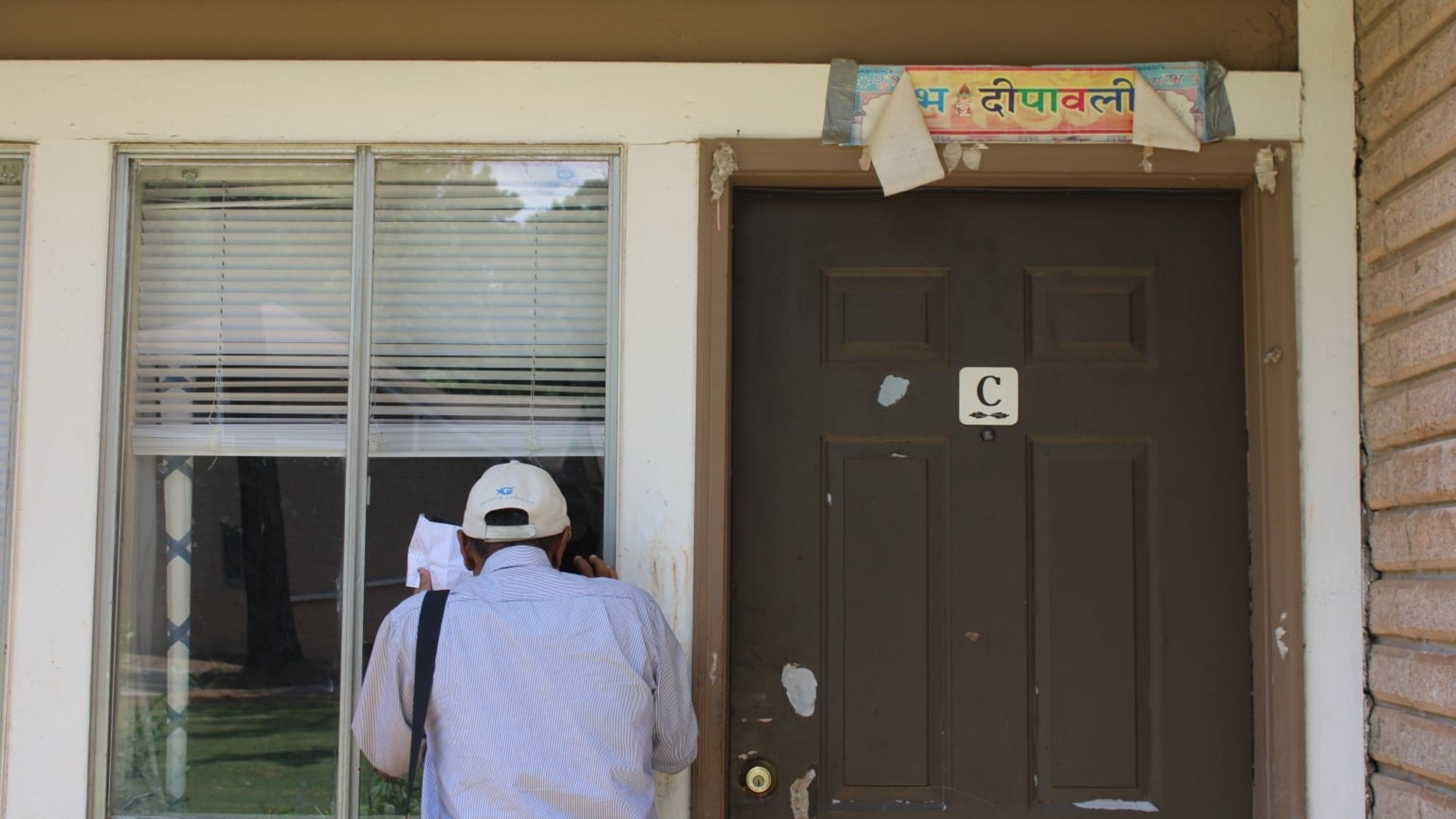
This story was originally published by 285 South.
It’s a hot summer afternoon in Clarkston, Georgia and Birendra Dhakal is walking up and down rows of identical beige apartment buildings, trying to remember where his clients live.
With a neat mustache, and dressed in a button down shirt, he has a messenger bag slung over his shoulder.
Finally, Dhakal comes to a door where he spots familiar signs. Two large woven baskets of drying beans sit on the pathway. A multicolored sign hangs over the entryway. A Bhutanese family lives here. He peers into the window to confirm he’s in the right place, knocks, and a family member comes out to greet him.
Dhakal works at the Clarkston Community Health Center (CCHC). It’s one of just a few free health clinics in metro Atlanta that exclusively serves those without medical insurance. It’s a vital service for Clarkston, where 20 percent of people don’t have health insurance. That’s in a state that already ranks in the top five of most uninsured residents in the country. In February, the organization added to its team of seven, hiring two community health workers. Birendra was one of them.
The plan is to have them reach out directly to residents in the Clarkston area who are falling through the cracks of the healthcare system, and to help those already in the system to navigate it. Similar programs have been piloted in the area before, including one from Georgia State University which helped to increase vaccinations rates in refugee communities.
Dhakal is a good fit for the job. He fled Bhutan and came to the U.S. more than twenty years ago, and has been helping fellow Bhutanese refugees build their lives here ever since. Plus, he had just retired after 18 years at the Georgia Aquarium and had free time.
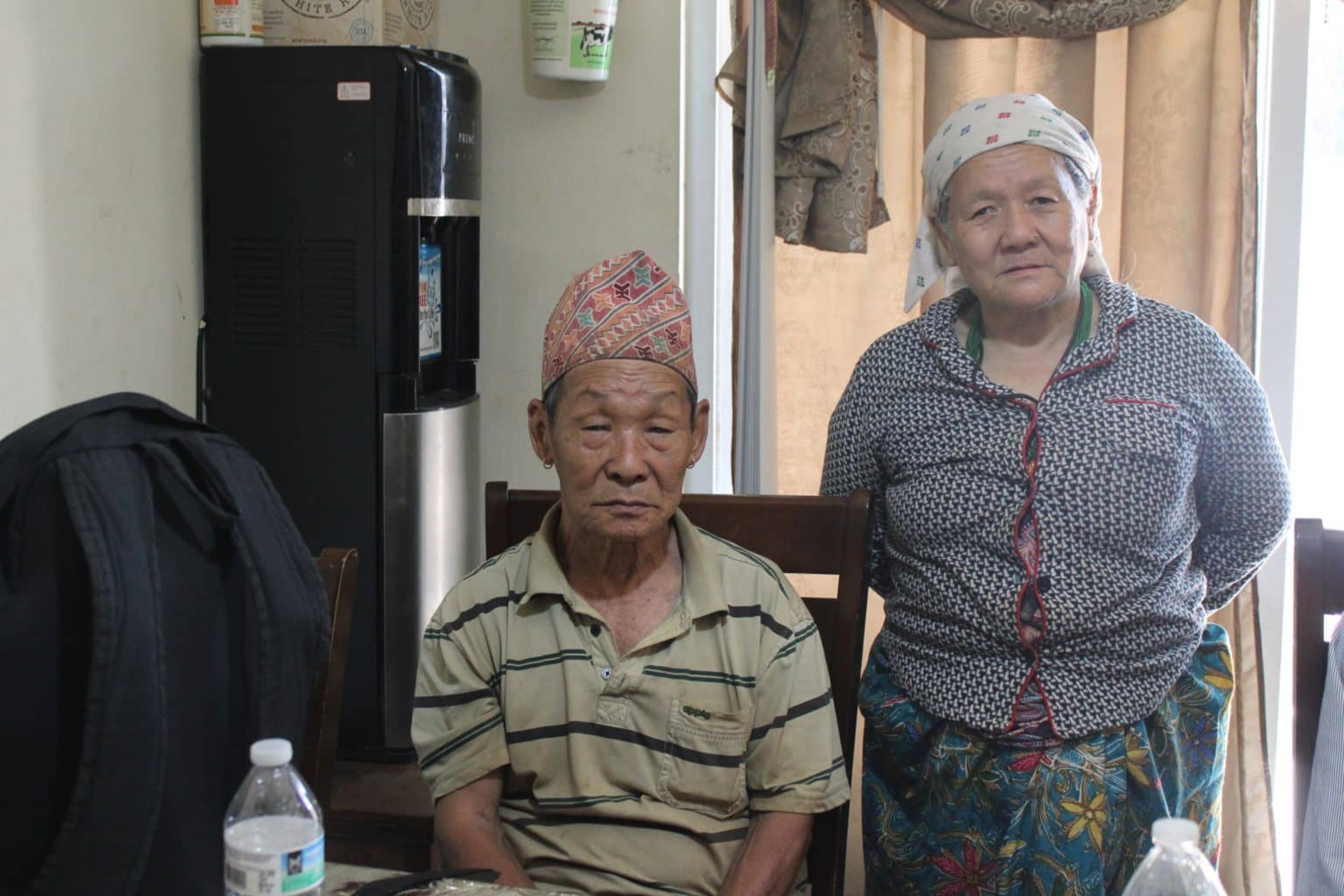
Inside the apartment, a young woman was sitting on the floor, feeding her child lentils and rice out of a metal bowl. Dhakal had come to see her mother and father-in-law.
This was his second visit. He was in this unit 10 days before and the plan today was to follow up with them, and see if they had made an appointment with CCHC for a checkup.
Jit Bahadur and his wife, Gira Maya, live in the two bedroom apartment with their son, Dil Rai, daughter-in-law, and their three children. In his first meeting with them, he learned the grandparents no longer had Medicaid and suffered from chronic issues like diabetes and high blood pressure.
Dhakal sat down with Jit and Dil at the kitchen table.
It had been ten months since the grandparents lost Medicaid, he learnt, and ten months since Jit had seen a doctor. When Gira wandered into the dining room, Dhakal noticed one of her eyes was milky white.
“I didn’t know about this at my last visit,” he said. “Because they didn’t have Medicaid, they didn’t bother to show [it to a doctor].”
The grandfather disappeared for a few minutes and came back carrying two large white paper bags and plopped them onto the table. They were filled with prescription bottles and boxes. One by one, he took them out to show Dhakal. Many of them were expired.
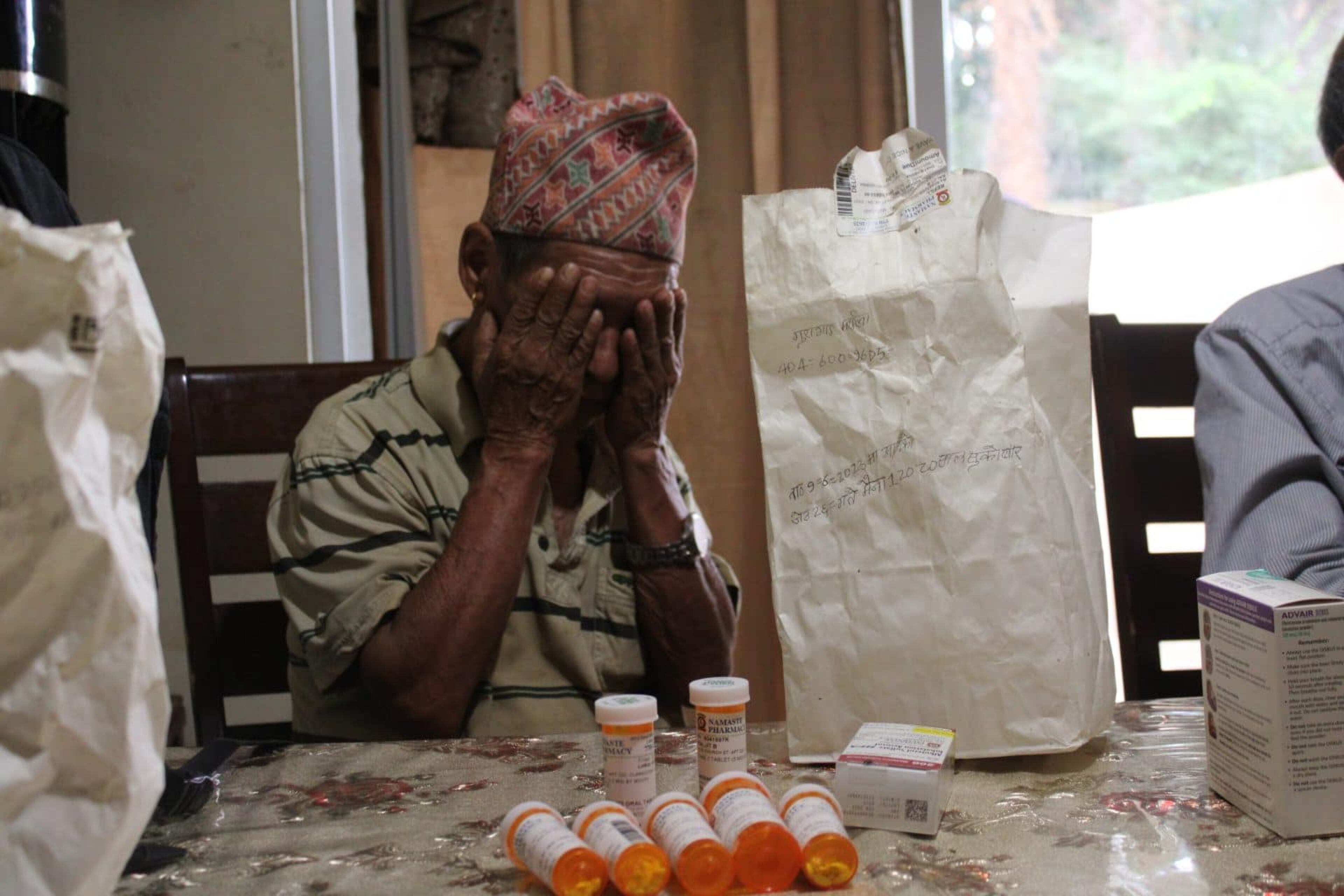
His son brought in a cardboard box, crammed full of papers. He rummaged through it, pulling out pages to hand to Dhakal, hoping he could help them make sense of the confusing situation they were in. Like many refugees and asylum seekers with complicated cases, their healthcare had fallen through cracks. “All this,” Dhakal said, gesturing at the box of papers, “is leading them to the health problem.”
“You have to go to court to fight for mother’s Medicaid and dad’s Medicaid. It’s a crazy place.”
The three children, Dhakal learnt, also didn’t have health insurance. Dil works at a chicken factory, and when his wife started working there too, their income went up just enough so that their children no longer qualify for Peach State, Georgia’s Medicaid Program.
They join hundreds of thousands of Georgia residents who lost Medicaid after federal pandemic protections ended, many for administrative related reasons like incomplete paperwork or changed addresses.
Dhakal asked Dil where he would take his kids if they got sick. Dil shook his head, speaking Bhutanese. He didn’t know of any free pediatric health clinics. “If they become sick, they have to pay,” Dhakal translated.
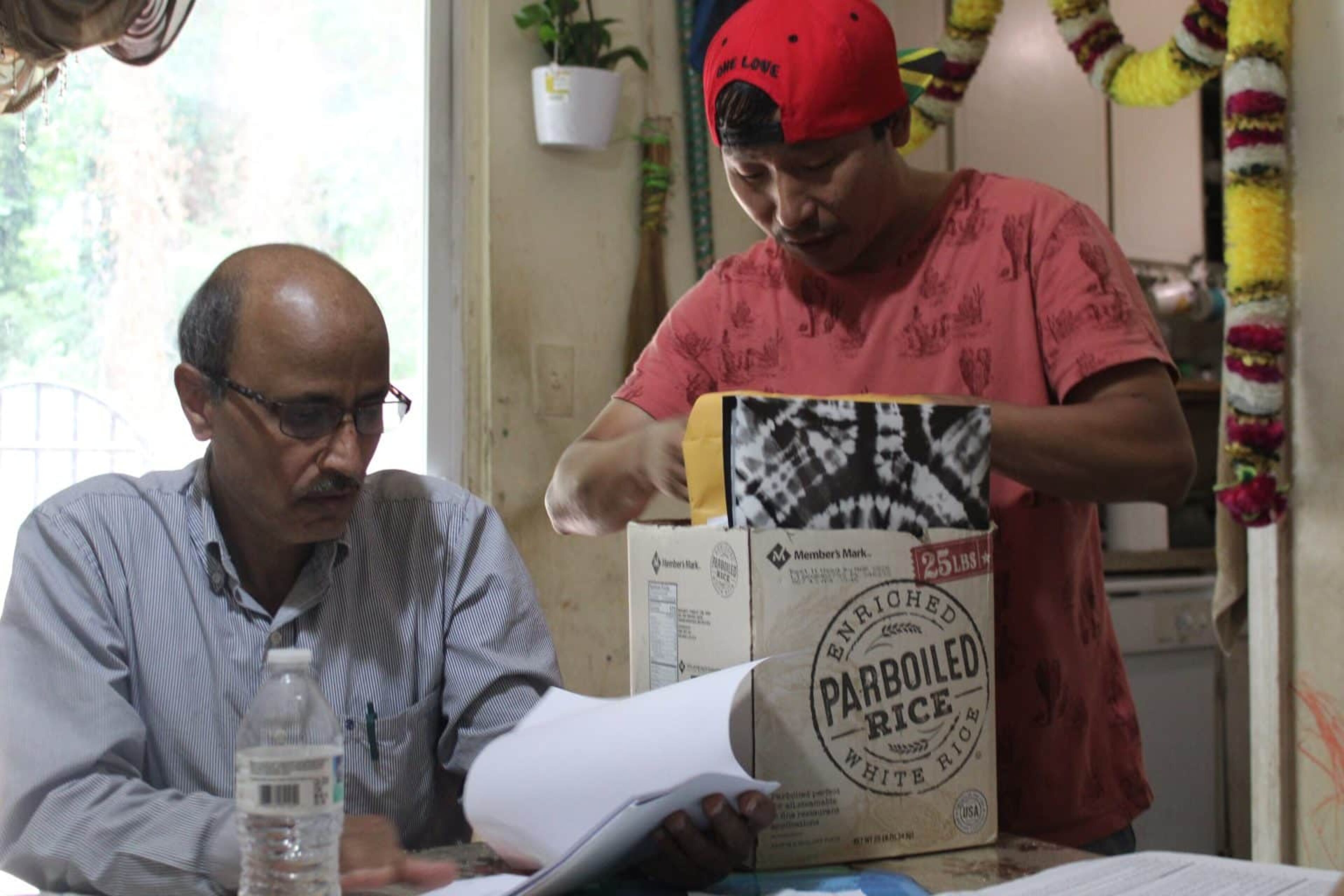
There are places Dil could take his children, like the Good Samaritan Health Clinic in Norcross or Grady Hospital, but patients have to know about them and make appointments in advance. In the case of Grady, they have to apply for a “Grady Card” – a process that requires documentation and time. Without someone to help them navigate the system, families with limited English and without an understanding of what’s out there and how to access it, can easily miss out on support.
Many experts are calling for more people like Dhakal.
“A lot of research shows the critical need for community health workers everywhere, and in particular, in diverse communities,” said Dr. Jeremy Cole, Executive Director of CCHC.
Even when patients finally make it to a doctor, other needs come up that also impact their health.
“In an exam room, there’s an acute issue the doctor is dealing with, but all of these other issues come up, and people start talking about how I can’t navigate Grady, how they don’t have food, housing issues, and other social determinants of health.” The purpose of community health workers, he added, is to be “supportive of what’s happening in the exam room, but also serve as a bridge to communities.”
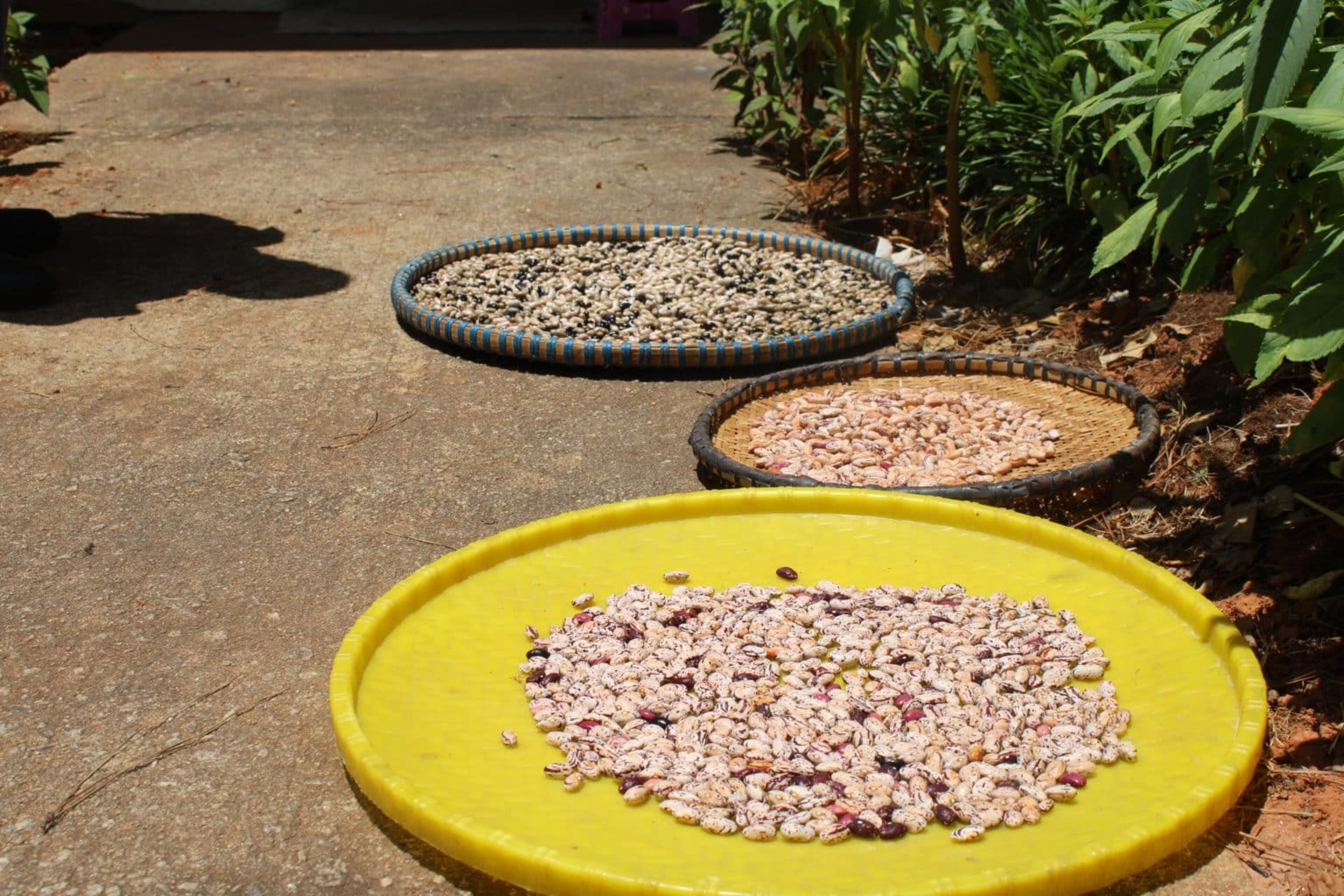
Despite the benefits, Cole said funding for the program isn’t guaranteed.
“We are very worried that the program might need to be shut down at the end of the year,” he told 285 South. That’s because finding money to support the work, he explained, which is “all on the outreach and prevention side of medicine…is too often deprioritized in favor of treatment after someone is sick.” But, he said the clinic will continue to “think creatively about providing these services.”
For the Bhutanese family, having someone help them through a complicated process was invaluable. In Bhutan, Dhakal said, “You just go to a government hospital or a government health center… It was free. You just walk in.” Here though, it’s “totally different.” “They’re lost,” he said, shaking his head. “They’re lost.”
As Dhakal wrapped up his visit, Dil promised him he would make an appointment at CCHC for his parents to get a checkup. In the meantime, they would continue to take care of their health the best way they know how – with walks around the apartment complex and growing vegetables and beans in their community garden.

MEET OUR PARTNER
285 South is an online news publication dedicated to metro Atlanta’s immigrant and refugee communities. Subscribe here.
If you have any feedback or questions about our partnerships, you can contact Senior Manager of Partnerships Nicole Williams via email at nicole.williams@ajc.com.

